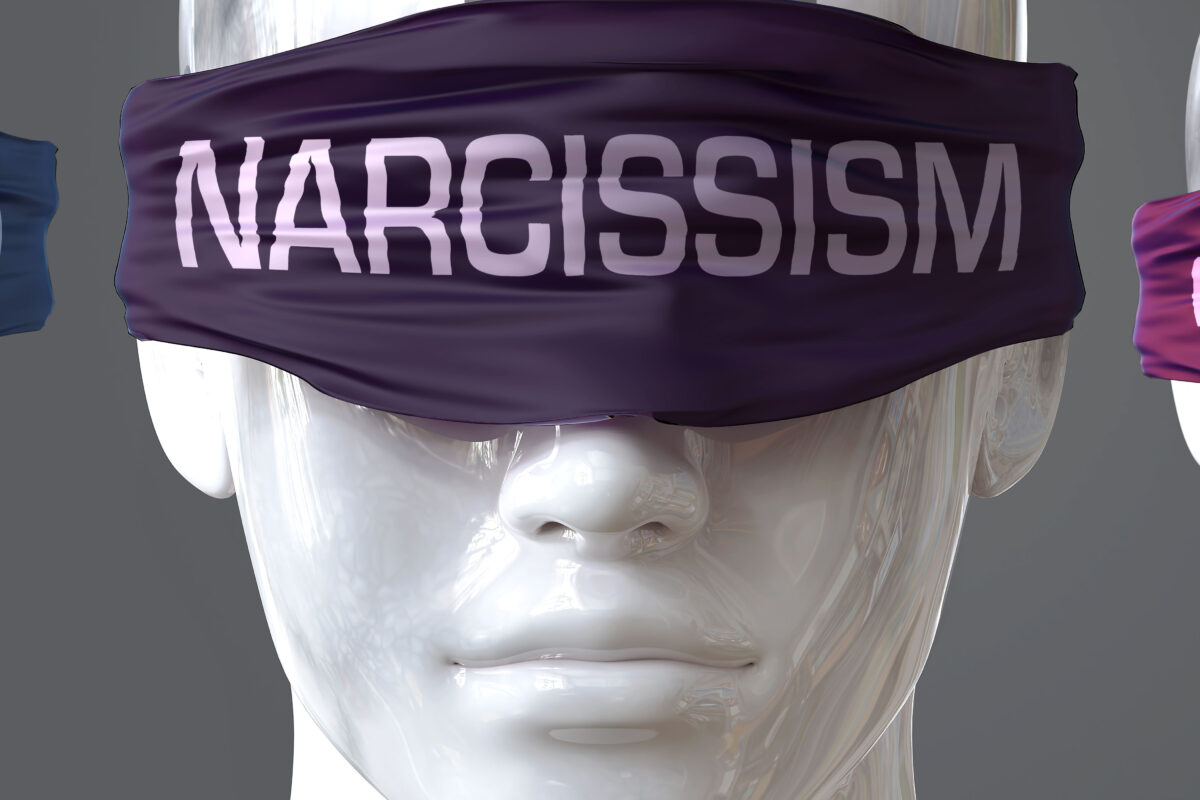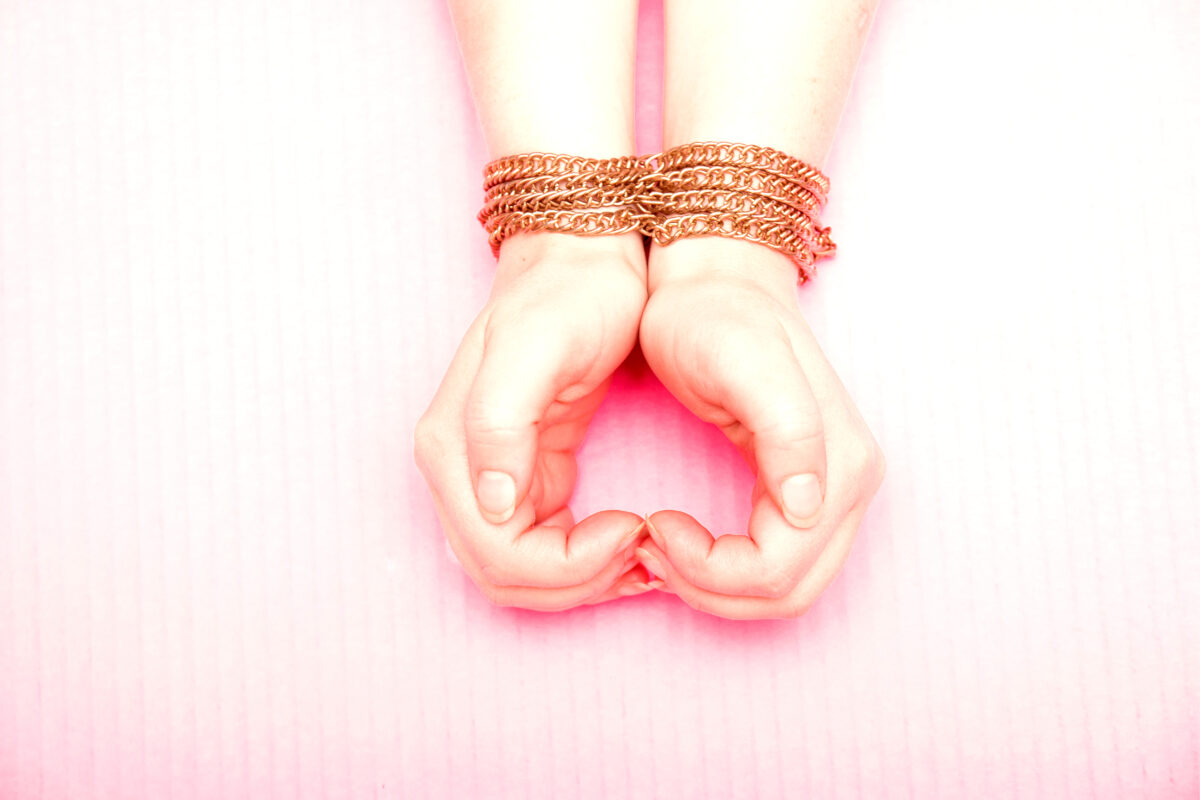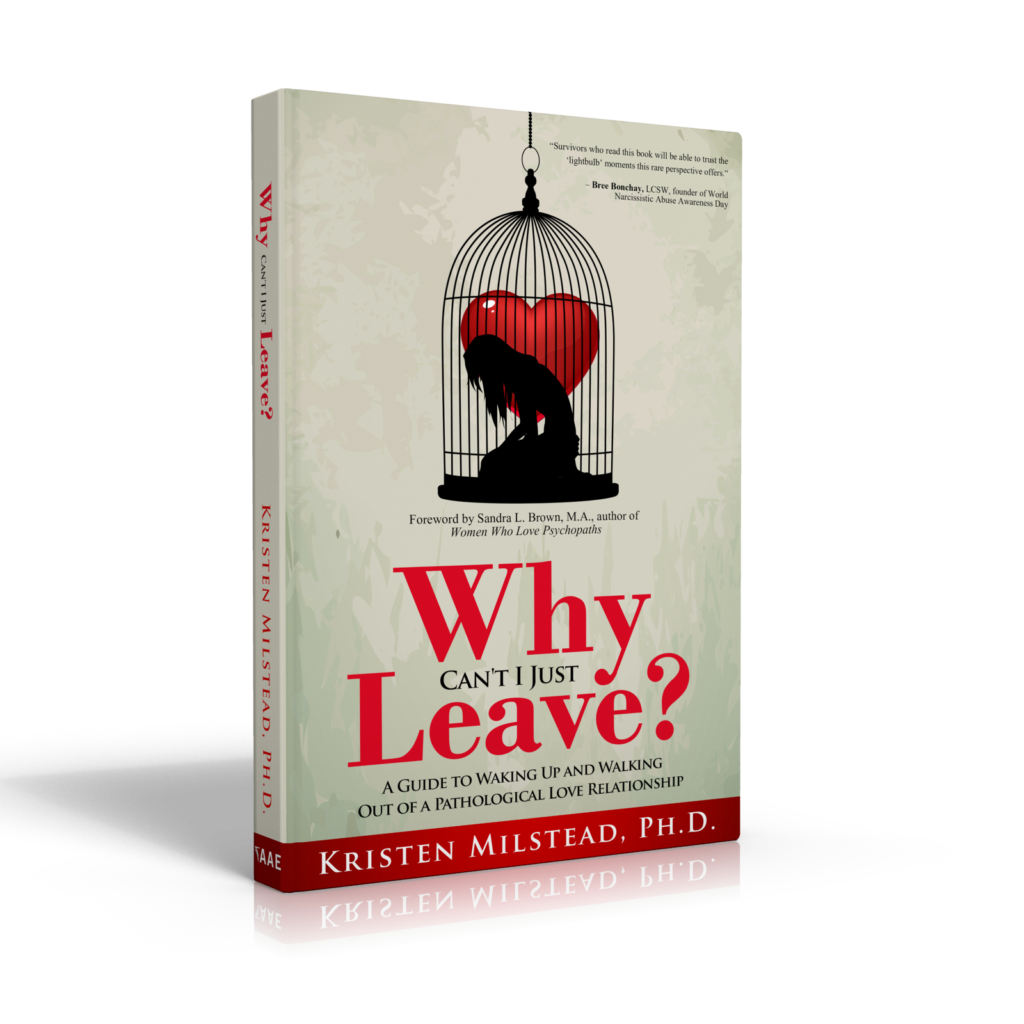At some point in the aftermath of what we’ve been through, we confront the idea of finding someone new after the narcissist who was in our lives.
I’ve had many people, both readers and people in my personal life ask me questions about my own dating life: when I planned to… if I’m doing it… how it’s going…
Yet dating after abuse isn’t something to be taken lightly. Experiences with narcissists have made us both targets and they have made us fearful.
Walking this line can put us in the crosshairs for many new pitfalls and perils, and also subject us to overwhelming new emotions we hadn’t yet experienced during our recovery.
Dating for us will never be the same again, but I don’t believe narcissistic abuse has to be a shadow over every future relationship we may have forever.

Issues We Face in Dating After a Narcissist
1. Falling at One Extreme or the Other in the Dating World
For some, there is the tendency to jump into something right away or soon after the breakup.
They make us feel inadequate or as if we aren’t good enough. We may even feel as if we have something to prove.
There is also the tendency to want to paste over that pain they left with someone new. Those intense emotions are difficult to deal with, and it may be easy to feel like a new person can lift us out of that turmoil and rescue us from hell.
Or… we may do the opposite. We may isolate ourselves from dating completely. We may feel so broken that we have adopted a belief that we never want to date again.
The emotional turmoil has instead pushed us to the fear that any new relationship will just end in feeling shattered again.
We never want to go through anything like that again and we may think it’s better to be alone.
2. Pressure from Other People to Date Again
Have you had people outside the relationship ask you when you’re going to get over it and start dating again?
They think you’re hanging onto something about the relationship.
Or perhaps they’ve read your unwillingness to date at the moment incorrectly, and they think you’re isolating when really you’re just recovering and making sure you’re ready.
There’s the belief out there that recovery includes dating other people. That’s not necessarily true–especially when you’ve been in an abusive relationship. Some people outside the relationship may not understand that and pressure you to do it too soon.
Recovery has no timetable and pressure to date after narcissistic abuse can add to the emotional turmoil you feel after the relationship ends and the feeling that there’s something wrong with you that was implanted by the narcissist.
3. Confusion Over What to Tell Potential Suitors
How much information do you give so that it doesn’t seem as if you’re keeping a secret, but it doesn’t seem as if you are still hung up on the relationship?
Being in an abusive relationship–particularly with a narcissist–is a big deal. As we know, it’s something that no one can understand unless they’ve been through it.
And yet, it’s something that is part of our history now and the person we choose to be with next will at least need to understand what a big deal it was.
So how and when do we talk about it?
There is no right or wrong answer.
We may feel that we definitely want to be wary about going into too much detail right away, but have no idea how to talk about this big thing that feels like the elephant in the room.
It can be a puzzle that makes us want to stay home.
4. Impaired Judgment Leading to a New Narcissistic Relationship
If we have not yet taken the time to understand the narcissist and ourselves and what happened in the relationship, we may start dating before we’re ready and end up with another narcissist.
Narcissists may leave a big black hole inside of us, and it may be difficult to admit, but they did it through careful winnowing out of our own identity over time.
This is what keeps some survivors on the sidelines. They don’t trust themselves or anyone else, and are afraid of ever going through a relationship like that one again. On the flip side, not having taken the time for a full recovery can lead to a lack of understanding of how we are abused.
We could end up in the same place with someone new.

8 Signs You’re Ready for Dating After Abuse
Indeed, the issues with finding someone new after narcissistic abuse can all offer clues for us about how ready we are. Here are some signs that we may be ready to move on.
1. You don’t have strong feelings about the narcissist anymore.
This doesn’t mean that you have forgiven the narcissist for what happened, but if you have a lot of anger, guilt, grief, or if your emotions swing wildly from one moment to the next about how to feel about what you went through, it’s a warning sign that you’re not ready for a new relationship.
They are signs that we are still traumatized and our judgment is impaired.
Here are a few key things you might feel that may tell you this is a bad time to start dating:
- you feel hatred toward the narcissist
- you’re still in love with the narcissist
- you swing back and forth between the two
- you’re obsessively reading about narcissism and can’t stop thinking about him or her
- you’re feeling suicidal or as if you’ll never get your life back
If any of these things are happening, you are still in recovery, likely in the early stages. It’s not a matter of time–it’s a matter of where you are in your healing journey.
It is dangerous to date while in this stage. The narcissist did not harm us in ways we detected at the beginning of the relationship but manipulated us slowly over time and eroded our ability to detect harm to ourselves.
Someone can very easily come in and do it again.
Think about it like this: if our house was hit by a tornado, our lives would be understandably thrown into chaos. We might lose everything and it would take time to rebuild.
We might wish for help or someone to come in and be by our side during this harsh time, but it’s a prime time for predatory strangers to step in and overcharge us to help get back on our feet because we are so desperate to get back what we had. Some may even try to walk right in and steal what we have left.
During this time, it’s better to rely on the people who care about us, whom we know we can trust.
If you feel as if there is no one on your life right now that you can count on, begin with learning how to trust yourself again. One small step at a time.
In this case, it’s better to slowly work through the chaos and rebuild on our own until we have our foundation back and can sort through who to trust again–as painful as it is.
2. Qualities that you used to find appealing about the narcissist are no longer attractive to you.
Narcissists are often exciting, passionate, charming and confident and they’re positive traits to have–in and of themselves.
Everyone who has these traits isn’t a narcissist, however, because the traits aren’t tempered in narcissists by empathy, patience, generosity (without strings attached), or foresight, these qualities are often all the narcissist has to offer us.
We get tricked or confused into thinking that a relationship without respect, trust, or honesty is one based on love.
Once we recognize that there is more to love than a passionate declaration or that actions that we were told conveyed concern were actually control, we will start to reject the overt display of these qualities when there’s no firmer foundation beneath them.
The narcissist primes us for the idealization-devaluation pattern. Even when our emotions are no longer in turmoil, we may still compare everyone to the narcissist who was in our lives.
If we think that fast-talking people who love bomb us and flatter us incessantly when we first meet are the most interesting of our choices of dating partners after what we’ve experienced, this is a warning sign–for ourselves.
We need to stop and ask ourselves what’s happening and why.
3. You don’t have the urge to rush things.
If we have the urge to move things forward quickly, that is a sign that we may not be ready.
As discussed above, narcissists may leave us feeling empty or hollow, due to the identity erosion they inflicted on us.
We may also feel the need to jump into something right away because that’s what the narcissist did or as some kind of “revenge” or proof to ourselves that we’re not the defective ones the narcissist tried to make us believe we are.
With these emotions as our guide, how would we keep ourselves safe and from falling for another narcissist?
4. You don’t have the urge to tell dating partners a lot about the relationship early on.
Sometimes it can feel as if we need to unburden ourselves, or worse, justify our own actions, when faced with the potential of a new relationship.
There could be many reasons for this. For example, maybe we are still caught in emotional turmoil and it’s difficult to stop thinking about it, for example.
However, if we start having new emotions, such as a need to explain ourselves or justify ourselves, it could be a key sign that we are still working through the shame of being a victim.
5. You no longer feel tainted or broken by the relationship.
Many people have written to me to tell me that they’re recovering, but they’ll never be the person they once were. They feel forever broken by what happened, or as if they’re now flawed or tainted by the narcissist.
That feeling does fade with time and with therapeutic treatment.
However, trying to date while feeling broken can be a recipe for someone who senses our brokenness to come in and offer a quick fix. We also can’t offer our best selves to someone else.
6. You have forgiven yourself.
Narcissists heap shame and guilt on top of us for many things that aren’t even our fault. In addition, we may have acted in ways or done things that we deeply regret.
On top of all that, we have to figure out how to forgive ourselves for being and staying with someone who hurt us so deeply.
If we can’t do that, we’re just continuing the work of the narcissist. Compassion toward ourselves enables us to avoid acting out of fear, shame, and desperation–which can keep us out of unhealthy relationships.
7. You don’t feel confused by potential red flags in everyone you date.
We’re armed.
We’ve spent hundreds of hours watching YouTube videos and read thousands of words about how narcissists act that we used to explain our abusive relationship in reverse.
Now that information serves as a filter for everyone we encounter. We can name all the signs of narcissism and we know what to look for this time. But, with this new knowledge, we may find that, everywhere we go, with everyone we meet, little red flags are raising.
Everyone isn’t a narcissist, although narcissism is a spectrum and we all have some narcissism or else we wouldn’t be able to get out of bed in the morning. Further, narcissistic tendencies in someone doesn’t necessarily mean they are a narcissistic abuser.
So what’s happening?
It could be that we haven’t adequately firmed up our own boundaries and we’re still unwittingly attracting those with sociopathic tendencies. It could also be that we’ve turned up the sensitivity rating so high on our narc-radar, that we are rejecting others with too little information for fear of being hurt again.
But how can we know the difference?
Honestly, it doesn’t matter. If you can’t tell the difference and most dating partners you meet seem to be narcissistic, that’s a clear sign to get out of the dating pool.
8. You can adequately sum up what happened to you in your own mind.
Do you understand what attracted you to the narcissist and what attracted you to him or her?
Do you understand how he or she was able to keep you in the relationship so long?
Do you understand that nothing you did was ever going to change the outcome?
Can you think about these things without getting lost down a trail of “whys” and “what ifs?”
Can you accept the reality without becoming emotional about it?
Accepting what happened doesn’t mean that you agree with what the narcissist did or anything about the narcissist’s version of reality.
In fact, it means the opposite. If the narcissist had it his or her way, you’d be embroiled in emotional turmoil, bleeding over what they did forever.
Accepting it just means that you are able to say, “It happened.” And you get to define it so you can let it go.
These signs are not meant to be judgments about who any of us are or why or when we should be ready. In fact, they are meant to keep us safe from harm.
It’s not a checklist that can tell you that when you achieve all nine, something inside you will know it’s time. It also doesn’t mean that if you can say yes to one or two of these things, you’re ready.
But if you’ve tried dating and it’s not working out or it’s making you feel worse, being unable to say yes to many of these signs may help explain why.
On the flip side, if you feel you can say yes to most of these signs and yet something is still holding you back, that might be a good place to examine more closely and continue your recovery.
This isn’t an exercise to take on to make you “dateable” or ready for a partnership. You are worthy of love and respect right now, as you are.
Examining these things, however, can help us return to normal life and become the best people we can be for ourselves.
Then we can have relationships again on our own terms.
Assistance with Recovering from a Breakup with a Narcissist
I’m always on the lookout for new and high-quality resources for survivors. Donna Anderson has a course on Recovering and Dating Safely after a Narcissist or Sociopath, which you can review here and see a preview. Lovefraud webinars on relationship abuse are presented by experts but also from the perspective of experience. Almost every instructor learned about the behavior of sociopaths in relationships the hard way. They’re affordable and offer practical information you can start using immediately. If you decide to try one, send me an email and let me know how it went!
Want more? Please take a moment to sign up to get all future articles delivered straight to your inbox.
Don’t forget to check out these resources on the website while you’re here:






5 Comments
Erin Murphy
I noticed the signs in 2018, he left January 2019, filed for divorce April 2019, & it finalized August 2020. I lost everything, including my now eight year old daughter… First I was hypersexual, & got burned several times. I wasn’t ready, & I was chum for the sharks. Now I’ve been celebid since February, 6 months now… I checked almost every box on this list… I’m not ready to date, & he left 2 1/2 years ago… I hope I recover one day & find REAL love, it will be the first time in my life. I still believe in love, & I know I am worthy of love!
Merle
After surviving my narcissist partner for 2years, I got back in a healthy relationship through online therapy. Good news is that we are getting married in March, and i can recommend anyone to this therapist if you want 😀
Jon Rhodes
Good advice! I think it’s true that if we don’t learn a lesson, then the universe sends us the same lesson, until we learn.
So if we can learn the signs to spot a narcissist, plus how to deal with them, then we’re ready.
Dan
Thanks for a useful perspective on this tricky subject. I’m a bit over a year away from my abusive relationship and have been progressively working to heal my damaged psyche. I still struggle with the idea of “readiness.” I’m pretty sure I won’t go for another narcissist. I already detected and shooed one away. I’m not worried about falling into that trap again. Instead, I dated a great woman for several months, but that didn’t work out because I wasn’t able to fully commit. I couldn’t make myself vulnerable like that. A year out, I’m doing so much better, but I have doubts that I’ll ever be able to really love someone again. From your perspective, at least, I don’t seem to be ready now. Trust seems to be the biggest obstacle.
pat
4 years after calling it quits with the dreaded N….i read one very telling piece that put things together in my “heart”……I’m not looking for my soulmate…..i’m looking for my soul…………..mate……..and thats the difference….not to pair up to make a broken half whole as some things say but to find your own “wholeness”,,,,,then there is no lack to be filled…..no perceived lack to be found by a nefarious person…..just oneself beyond the “i am this”….connected….namaste